Victory Point is the tale of an ambitious Modernist seaside haven turned forgotten coastal oddity from the mind (and pen) of award-winning architectural illustrator Owen D. Pomery. Frances Castle reviews.
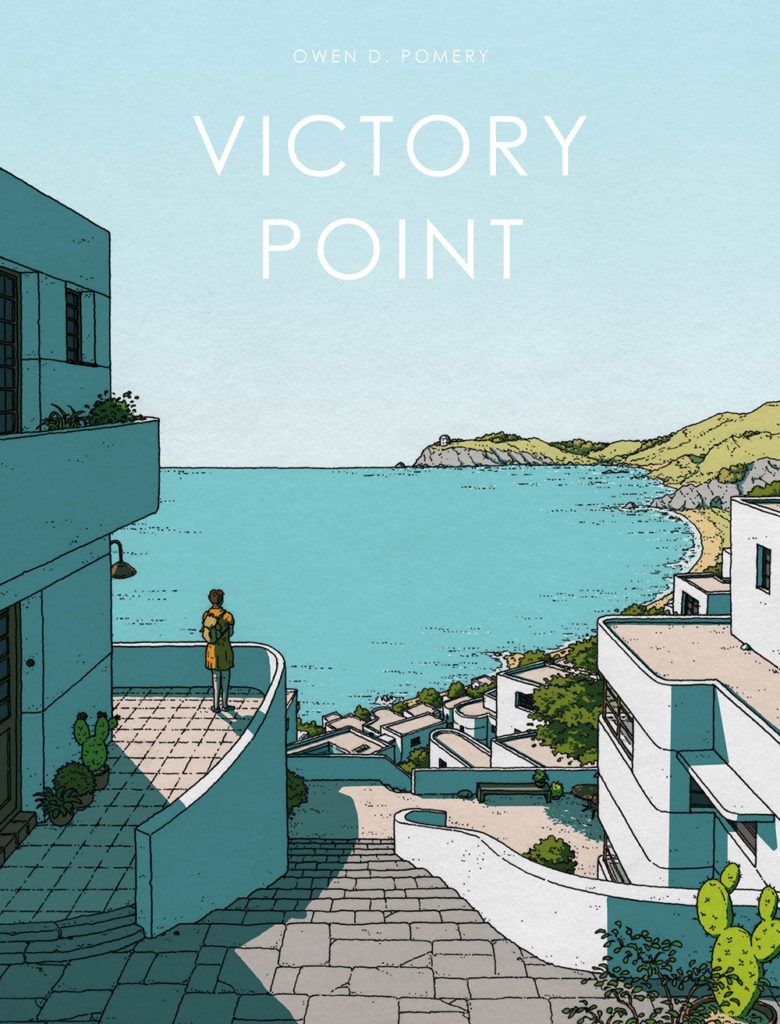
In 1933, the coastal village of Victory Point became the site of an experiment in which the architect ML Schreiber was appointed to redesign the town in a modernist style, hoping to create a new, contemporary way for its inhabitants to live. Only a third of the build was ever completed, the response from the public was muted, and today it remains a quiet seaside oddity. Victory Point is an imagined British coastal town, but under the pen of Owen D. Pomery, with his eye for architectural detail, it feels so real I had to google it just to be sure.
One hot summer’s day, city-based Ellen returns to her hometown of Victory Point. At the station shop she bumps into an old school pal, and walking through the town stops to talk to some architectural students on a day trip; “it’s a thrill to see Schreiber’s masterpiece for real, a glimpse of a future that could have been” they tell her. Sun bounces off the white concrete paths as she heads up to the observatory on the headland — part of the plan for the town was that it would become a centre for art and science, and it was her mother’s job as a scientist that had brought the family to the area.
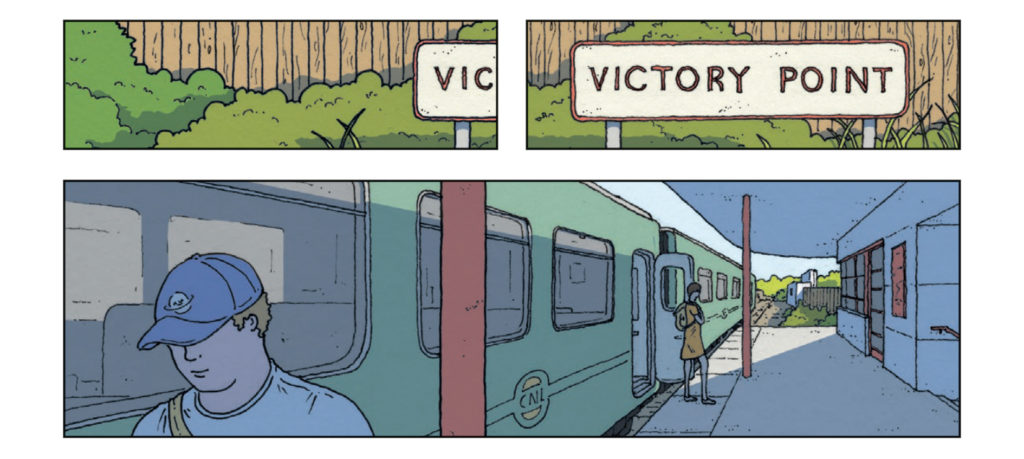
Pomery perfectly captures the feel of an overheated, woozy summer’s day, with concise line work and a cleverly chosen colour palette. Long shadows fall across foot paths, cliff top steps and art deco houses, and the sea sparkles a bright turquoise blue. You can almost taste the warm sea air. Elsewhere in the book he cleverly plays with light and shade — I particularly like the way the light falls through the window and onto the bed as Ellen wakes at her father’s house. Equally, the mid-century interior and furniture design is beautifully done.
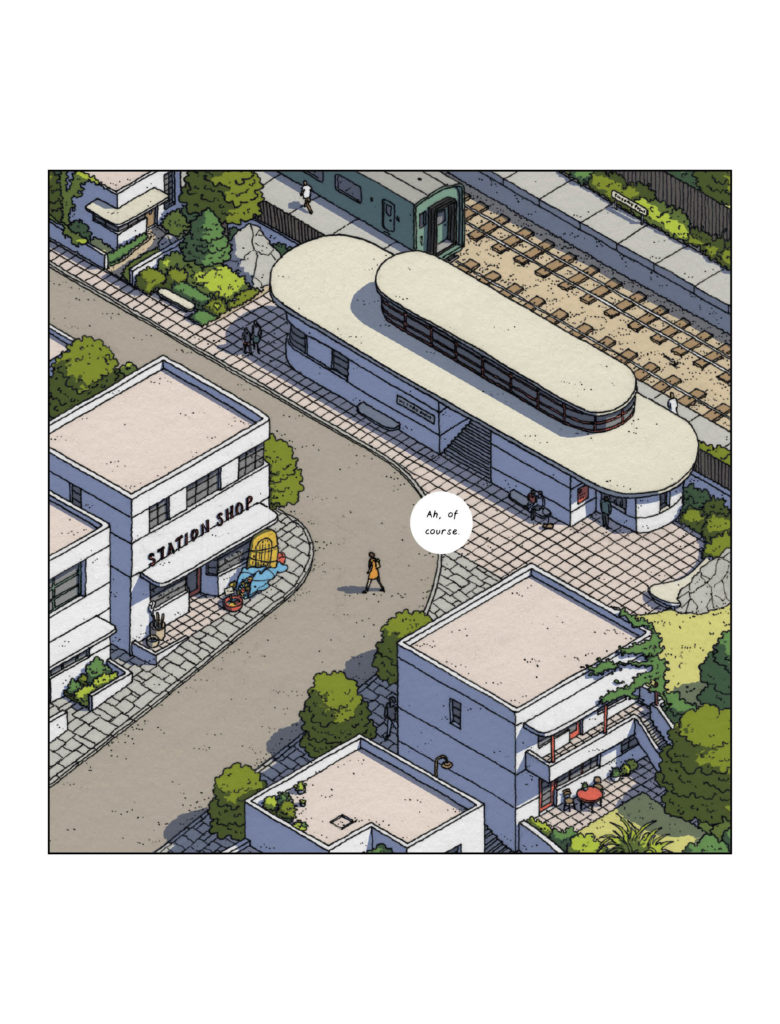
Ellen is at a point in her life where she wants to move forward, and visiting Victory Point and looking back into her past seems to be a way of working through this — though when she mistakenly picks out a child’s swimming costume for herself in the village shop, you realise that she maybe having problems confusing past and present, childhood with adulthood. When Ellen was seven her mother was killed climbing a ladder up to the lens aperture at the headland observatory during a storm. The plaque that commemorates her has become scratched and worn. Her father seems unfazed by this, telling Ellen that the memory of her mother lives on amongst those that knew and loved her.
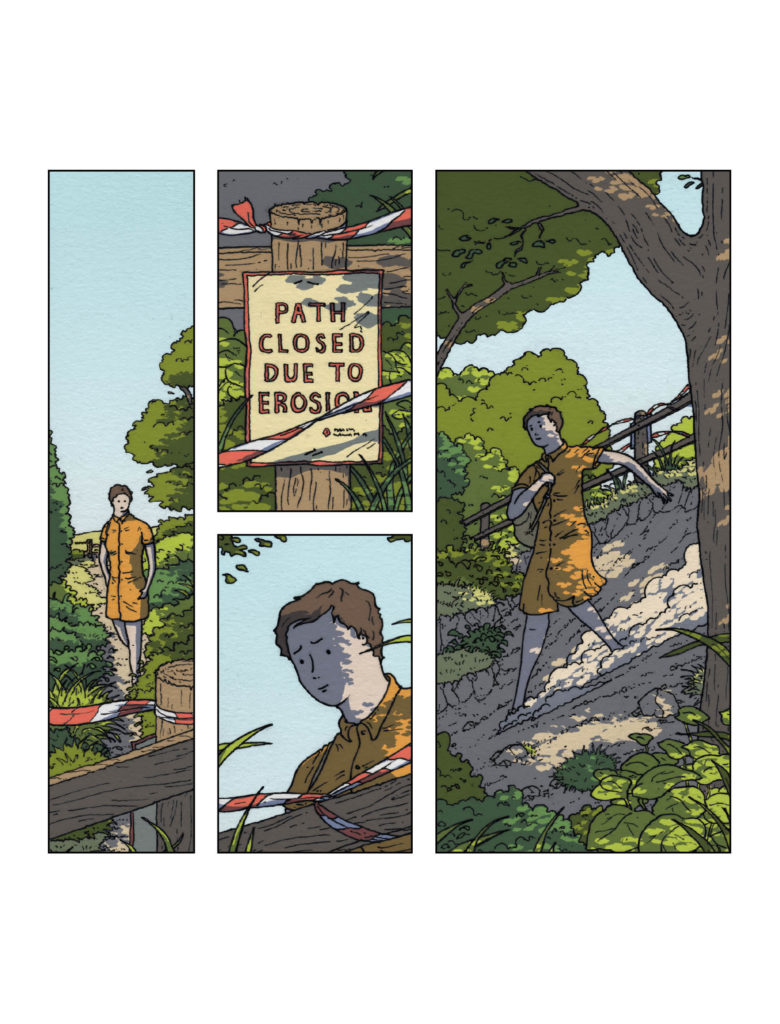
On his website, Owen D. Pomery states that the book is about the choices we make, how we choose to live and be remembered; whether should we strive for a higher calling or settle for a simple domestic legacy. It’s also a book that takes you into someone else’s world — to the heat of a summer’s day as Ellen floats naked in crystal clear sea, contemplating her her future.
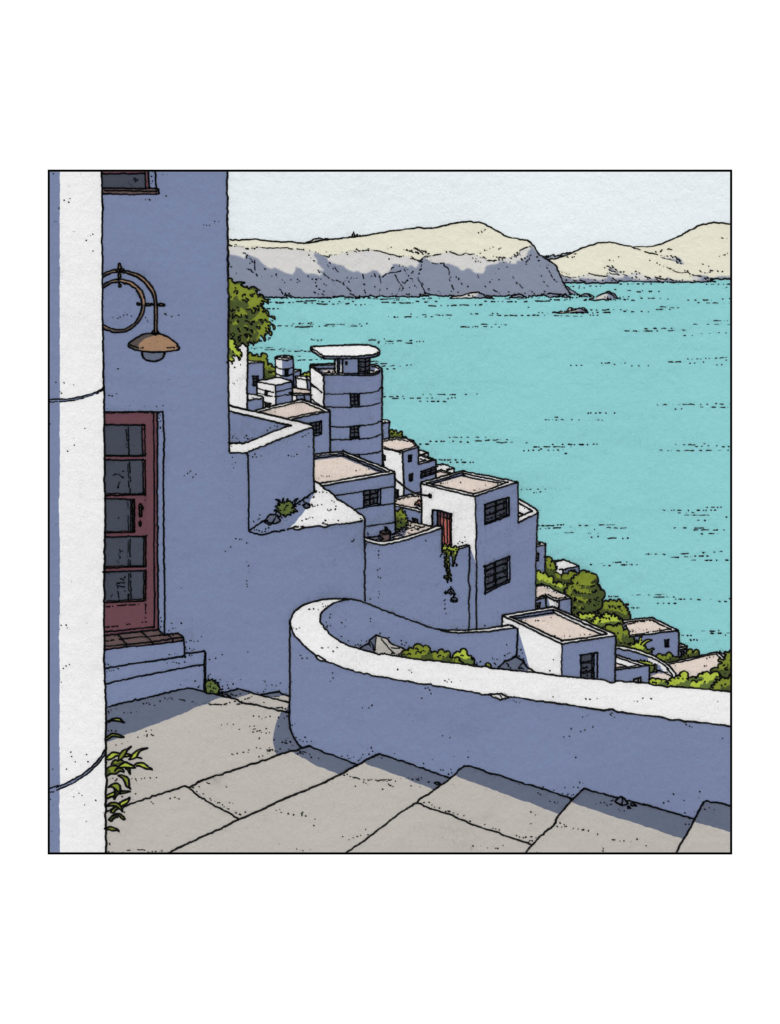
Though the question of individual legacy goes unanswered, Victory Point is so perfectly imagined — with its Art Deco-style houses on the hilltop and the steps and trees that run between them — that it becomes a place you can truly escape to.
*
‘Victory Point’ is out now and available here, published by Avery Hill.